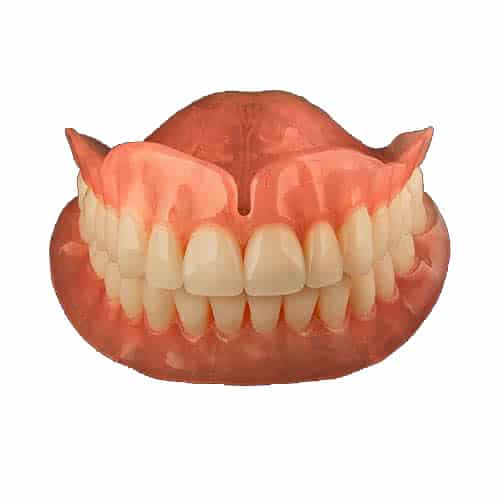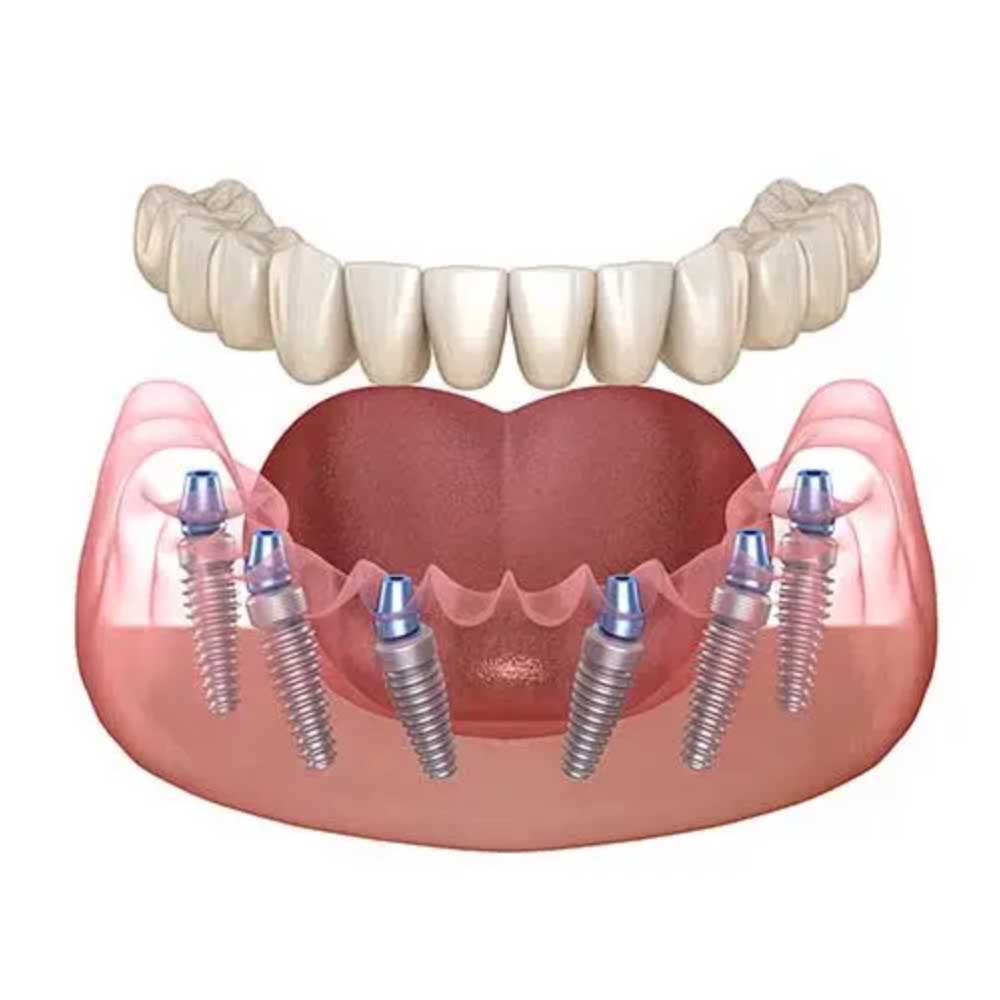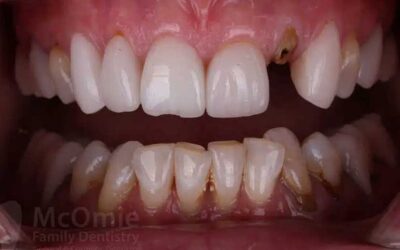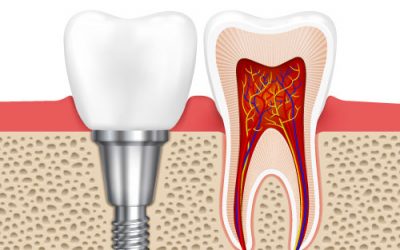Quick Summary
Dental implants are surgically placed metal posts that fuse with your jawbone and can last a lifetime with proper care, while dentures are removable prosthetics that rest on your gums and typically need replacement every 5 to 8 years. Implants prevent jawbone loss and maintain your facial structure, functioning like natural teeth without daily removal or adhesives, though they require a higher upfront cost and surgical procedure. Dentures offer a faster, non-invasive, and more affordable initial solution but may cause discomfort, require daily cleaning and removal, and lead to jawbone deterioration over time.
Key Takeaways
- Ask your dentist if you have adequate bone density and healthy gums for implants, which have a 95-98% success rate and can last a lifetime with proper maintenance.
- Understand that while dentures cost less initially, replacements every 5 to 8 years can make implants more cost-effective over the long term.
- Know that implants stimulate your jawbone like natural tooth roots to prevent bone loss and the sunken facial appearance that can occur with dentures.
Discuss with your dentist how implants eliminate the need for daily removal, messy adhesives, and eating restrictions that come with dentures.
Missing teeth can have a profound impact on your daily life, affecting everything from the way you eat and speak to how you feel about your appearance. Replacing these teeth is essential not only for aesthetic reasons but also for maintaining overall oral health. Two popular solutions are dentures and dental implants. Understanding their differences can help you decide which option offers the best long-term benefits, especially if you’re considering dental implants or dentures in Chattanooga, TN.
Understanding Dentures
Dentures are removable prosthetic devices designed to replace missing teeth and the surrounding gum tissue. They are custom-made to fit your mouth and can restore the function and appearance of your smile.
Types of Dentures
Dentures can be complete, replacing all the teeth in the upper or lower jaw, or partial, filling in gaps when some natural teeth remain. Made from acrylic resin and sometimes combined with metal attachments, dentures rest on the gums and are held in place by suction or adhesives.
Advantages
One of the main advantages of dentures is that they provide a quick and non-invasive solution to tooth loss. Getting dentures typically involves taking impressions of your mouth, after which the dentures are crafted to fit your gums precisely. This means you can restore your smile without undergoing surgery. Additionally, dentures are generally more affordable upfront compared to other tooth replacement options.
Challenges
However, dentures also come with specific challenges. They may feel bulky or uncomfortable in the mouth, especially during the initial adjustment period. Some people experience difficulties with speaking or eating certain foods. Dentures can also shift or slip while you are talking or chewing, which might cause embarrassment or discomfort. Over time, changes in the structure of your mouth can affect the fit of your dentures, necessitating adjustments or replacements. On average, dentures need to be replaced every 5 to 8 years due to normal wear and changes in gum and bone structure. Regular maintenance is required, including daily cleaning and proper storage when not in use.


Exploring Dental Implants
Dental implants offer a more permanent solution by replacing tooth roots with metal posts surgically inserted into the jawbone. These implants serve as a sturdy foundation for fixed or removable replacement teeth that are made to match your natural teeth in appearance and function.
Procedure
The process involves a minor surgical procedure where the implant is placed into the missing tooth’s bone socket. Over time, the jawbone heals and grows around the implanted metal post, anchoring it securely in the jaw.
Benefits
One of the significant benefits of dental implants is that they look and feel like your own teeth. Because they are designed to fuse with bone, they become a permanent part of your mouth. This integration helps prevent bone loss in the jaw, maintaining the natural shape of your face and smile. The aesthetic benefits of restorative dentistry further enhance your overall appearance.
Implants also eliminate the discomfort of removable dentures and the inconvenience of removing them for cleaning. You care for implants just like natural teeth, with regular brushing and flossing. Dental implants can improve oral health by allowing easier access between teeth, which promotes better hygiene. They do not require reducing other teeth, as a tooth-supported bridge does because nearby teeth are not altered to support the implant. This preserves more of your natural teeth and improves long-term oral health. Additionally, implants are durable and have a high success rate, reported to be up to 95–98%, and with proper care, they can last a lifetime.
Considerations
On the downside, dental implants require a surgical procedure, which carries inherent risks such as infection, nerve damage, or sinus problems. The process can take several months, involving multiple stages, including the initial implant placement, healing time, and placement of the replacement tooth. Implants also tend to be more expensive upfront compared to dentures. Not everyone is a suitable candidate for dental implants; adequate bone density and healthy gums are necessary for successful implantation. In some cases, dental bone grafting may be required to ensure proper implant support. Dental implants for seniors can also provide a robust alternative for older adults considering dentures.
Comparing Costs and Longevity
When considering the financial aspect, dentures generally have a lower initial cost. This makes them attractive to those seeking a more affordable, immediate solution. However, dentures may need to be replaced or relined over time due to wear or changes in the mouth’s structure. These ongoing costs can add up, making dentures less cost-effective in the long term.
Dental implants involve a higher upfront investment but are designed as a long-term solution. Their durability can make them more cost-effective over time, especially considering that they can last a lifetime with proper care. While the initial expense is more significant, implants may reduce or eliminate the need for future replacements or adjustments, potentially offering savings in the long run. For a detailed understanding of the cost of dental implants, refer to our comprehensive guide on dental implant pricing.
Impact on Oral Health
Dentures rest on top of the gums and do not stimulate the underlying bone. This lack of stimulation can lead to bone loss over time, which may alter the shape of your jaw and affect the fit of your dentures. Bone loss can also impact facial structure, leading to a sunken appearance around the mouth.
Dental implants, conversely, stimulate the jawbone similarly to natural tooth roots. This stimulation helps maintain bone density and prevent deterioration. By preserving the bone, implants help maintain facial structure and prevent the sagging appearance that can accompany bone loss.
Comfort and Convenience
Comfort is a significant factor when choosing between dentures and implants. Dentures may cause discomfort due to their bulkiness or the pressure they place on the gums. They can make eating certain foods difficult and may affect speech. The need to remove and clean dentures daily can also be inconvenient for some people.
Dental implants feel and function like natural teeth, providing greater comfort and confidence when eating, speaking, and smiling. They eliminate the discomfort of removable dentures and the need for messy adhesives. Since implants become a permanent part of your mouth, they do not slip or move, allowing you to eat your favorite foods without worry.
Time and Procedure
The process of getting dentures is generally quicker and does not require surgery. After initial consultations and measurements, dentures can often be fitted within weeks. This makes dentures a faster solution for tooth replacement.
Dental implants require a more extended process due to the surgical placement and healing time needed for the implant to fuse with the jawbone. This healing period, known as osseointegration, can take several months. While this means implants take longer from start to finish, the result is a stable and durable tooth replacement.
Making the Right Choice
Choosing between dentures and dental implants depends on several factors, including your oral health, lifestyle preferences, and financial considerations. Dentures might be the appropriate choice if you are looking for a quick, non-surgical solution with a lower initial cost. However, dental implants may be the better option if you desire a long-term solution that offers greater comfort, functionality, and oral health benefits. For more information on alternatives to dental implants, explore our comprehensive guides.
Consulting with a dental professional like Dr. McOmie is crucial in making an informed decision. A dentist can assess your oral health, discuss your goals and concerns, and recommend the most suitable option. They can explain dentures and implant procedures, potential risks, and expected outcomes.

Embrace a Future with a Healthy, Confident Smile
Both dentures and dental implants offer viable solutions for replacing missing teeth, each with its own set of advantages and limitations. Dentures provide an affordable and non-invasive way to restore your smile but may come with challenges related to comfort, maintenance, and long-term oral health. Dental implants offer a durable and natural-feeling alternative that promotes bone health, requires less maintenance, and involves a surgical procedure and higher upfront costs.
Ultimately, the best long-term solution is the one that aligns with your individual needs, preferences, and circumstances. By thoroughly understanding the differences between dentures and implants and consulting with a dental professional, you can make a decision that will restore your smile and improve your quality of life.
Rebuilding Smiles and Confidence with Restorative Dentistry in Chattanooga ensures you receive the best care tailored to your needs. Additionally, our advanced cosmetic dentistry services enhance the aesthetic benefits of both dentures and implants, giving you a beautiful and functional smile.
Schedule Your Consultation with McOmie Family Dentistry Today
If you’re ready to explore tooth replacement options, the experienced team at McOmie Dentistry in Chattanooga, TN, is here to help. Dr. McOmie and his dedicated staff provide personalized care to guide you toward the best choice for your dental health. Contact us today at (423) 899-1112 to schedule your appointment. Let us partner with you on your journey to a healthier, more confident smile.
Investing in tooth replacement is an investment in your health, confidence, and happiness. Whether you choose dentures or dental implants, taking action to address missing teeth is a positive step toward enhancing your well-being. Remember that maintaining good oral hygiene and regular dental check-ups are essential, regardless of the option you select. With the proper care and professional guidance, you can enjoy a functional, beautiful smile for years.




